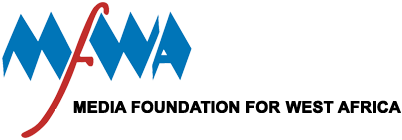Economy
Economic sustainability is a pre-condition for independent, quality media coverage as financially independent media outlets are less likely to be a pawn in the hands of the powerful in politics or business. In Ghana, the overall economic environment and media-market structure is characterized by vibrant emergence of new media outlets which, however, face financial challenges.
State media gets cash injections
Like in many countries, most newspapers in Ghana depend on two main sources of funding – sales and advertisement. Print production is expensive and so are consequently the print products – too expensive for the average Ghanaian. So, it is a common phenomenon that new newspapers hit the newsstands and in months, they have disappeared because of their inability to cover their production cost. This is not true for the state-owned print enterprises, with the Graphic Communications Group Ltd. leading the way. It gets the lion’s share of state advertising, meaning government contracts, job postings, press releases and other information of public interest placed in the media for a fee. State advertising is, based on MOM’s legal assessment, distributed in an in-transparent and unfair procedure: accordingly, the Graphic Group shares only a fraction of the state advertising with other print outlets like the Daily Guide Newspaper when the NPP is in government, or the Enquirer Newspaper when the NDC forms the government.
For television and radio, government appears to place advertisements mainly in media outlets with a big audience share. But also in the broadcasting sector, the state-owned Ghana Broadcasting Corporation has a financial advantage as it is operated by people hired by the state, paid for and sustained at state expense. The commercial broadcast media on the other hand has to rely solely on advertising as radio and television stations in Ghana mostly provide free-to-air services.
Advertising comes from multi-corporates and churches
The commercial advertising market is just as intransparent as the public advertising. According to a pan-African study from 2015, the total advertising budget was at GHC 403.3 mio (USD 92.1 mio.). Almost a third of that amount (GHC 130 mio.) came from ‘Corporate and Multibrands’ of which multi sponsorships and – interestingly – churches are the main drivers. Advertising also came from the food & beverages sector (GHC 96 mio.), pharmaceuticals (GHC 73 mio.), communications – especially mobile service providers (GHC 71 mio.), and financial services (GHC 56 mio.).
Cross-subsidizing in big (media) company groups
There is a growing trend in the country of non-media company owners setting up media outlets. Even when media outlets are not profitable (yet) and require cross-subsidizing, they still can be used as free advertising platform for own products and services – and function as a long-term investment. The cascading effect is that most media outlets whose owners do not own any other business apart from a media entity will be priced out of competition. Examples are for such companies that combine media and non-media activities is The Despite Group of Companies Limited and the Kessben FM Limited.
Low salaries for journalists and ‘Soli’
The financial troubles of media houses lead to low salaries and poor working conditions for journalists. As a coping mechanism, journalists adopted the unhealthy practice of subtly demanding money from event organizers before they get their news covered. ‘Soli’, a popular terminology within the journalism practice in Ghana, is the hand out, often in cash, that event organizers pay to invited journalists to report a story. This phenomenon though often condemned by many media experts and regulatory bodies in the country, the ‘Canker’ has festered on and it appears the practice has a veiled acceptance within the industry.
Sources
James Quansah et al. (2012). Brown Envelope of Journalism in Ghana: Perceptions of some Media Practitioners in Kumasi.
Kwame Yeboah (2011). Cash For Coverage - “Soli” Journalism In Ghana. Accessed 17 July 2017.
Andy Fosu (2010). Poor remuneration for Ghana’s journalists- A bane to press freedom and ethical standards. Accessed 17 July 2017.
Deutsche Welle Akademie (n.d.). Media Viability. Accessed 17 July 2017.



